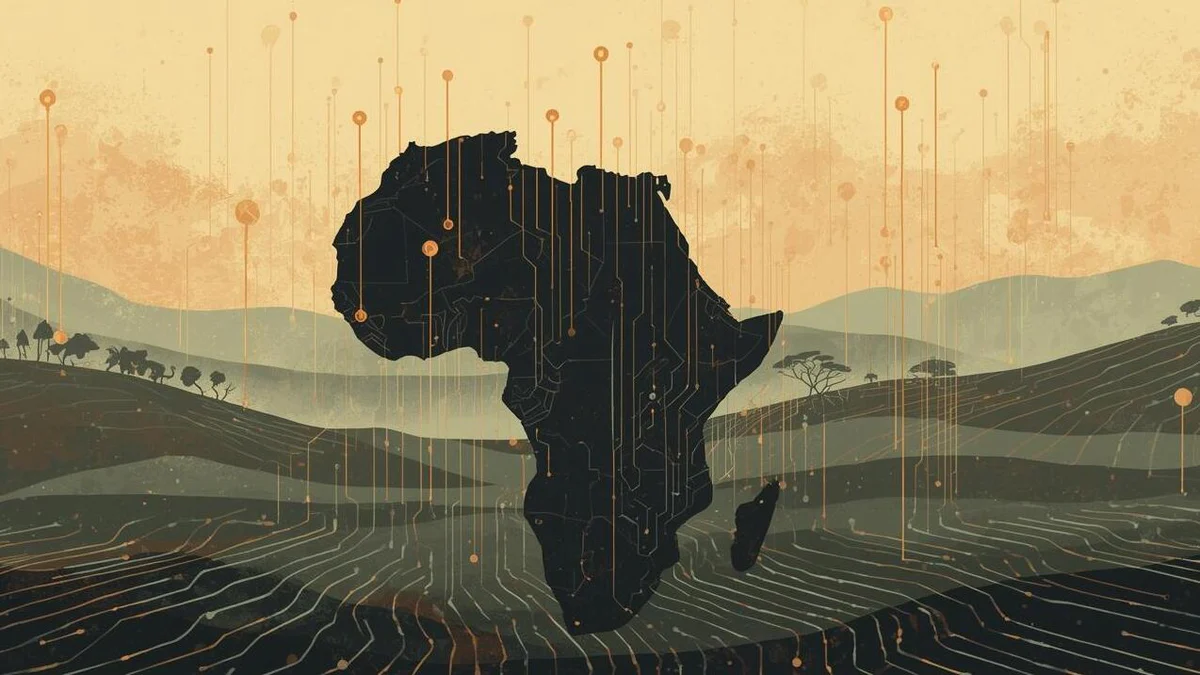Africa's Critical Battle for Local Languages in Global AI Development
Africa faces a critical challenge in preserving and integrating its local languages into the rapidly evolving AI landscape. While the continent lags in AI development, this presents a unique opportunity to build inclusive, culturally-aware AI systems that could transform current technological limitations into strategic advantages.

African tech developers working on local language AI integration
Africa's Critical Battle for Local Languages in Global AI Development
The rapid evolution of artificial intelligence (AI) globally raises a crucial question: How can Africa's local languages secure their place in a technological ecosystem dominated by English, Mandarin, and Spanish? While the continent lags in industrial and scientific AI deployment, it simultaneously faces a strategic challenge: ensuring the survival, promotion, and integration of its languages in tomorrow's digital landscape.
Global Context and Technological Asymmetry
The United States, China, and to a lesser extent, Europe, currently dominate AI infrastructure, funding, and patents. This concentration of power creates significant challenges for emerging regions:
- Research concentration: 80% of scientific publications in the field come from fewer than ten countries
- Private sector dominance: Tech giants (Google, Microsoft, OpenAI, Baidu, Tencent) largely direct research and development priorities
- Infrastructure gap: Access to supercomputers and large language models remains highly unequal
In this global landscape, Africa faces structural challenges in funding, training, and data availability. However, this deficit could become a strategic advantage if the continent successfully leverages its linguistic and cultural uniqueness.
The Critical Role of African Languages
With over 2,000 languages, Africa's linguistic diversity presents both challenges and opportunities in the AI landscape:
- Risk of erasure: Languages like Wolof, Lingala, Swahili, and Hausa remain underrepresented in language model training data
- Cultural and identity stakes: Linguistic erosion threatens both cultural transmission and cognitive sovereignty
- Opportunity: Structured corpus development and targeted machine translation programs could transform this challenge into a differentiating advantage
Emerging Local Initiatives
Several African projects are working to bridge the digital language divide:
- Masakhane: A pan-African network of researchers focusing on African language machine translation
- Academic institutions: Universities in Nairobi, Johannesburg, and Accra are investing in natural language processing (NLP) laboratories
- Startups: Local companies are developing voice solutions adapted to African markets in banking, health, and education
Geopolitical and Economic Implications
Ignoring the language question means accepting long-term technological dependence. The implications span multiple dimensions:
- Economic: Local actors risk marginalization in the global digital economy
- Political: States' capacity to regulate AI usage may be compromised
- Social: Growing divide between elites connected to dominant languages and local language speakers
Africa's AI gap shouldn't be viewed solely as a disadvantage. The battle for local languages represents a crucial dimension of sovereignty and a strategic opportunity. With clear, coherent, and sustainable investments in corpus development, engineer training, and infrastructure funding, the continent could position itself not as a follower but as an original player, capable of reinventing AI rooted in its social, economic, and cultural realities.
Jack Thompson
Reporter based in Sydney, Jack covers climate issues, migration policies, and Australia's Indo-Pacific strategy.
